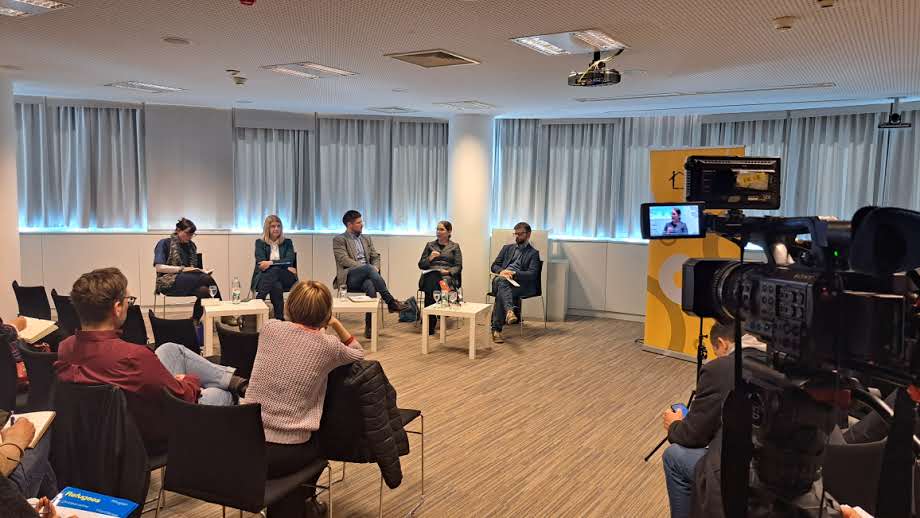The Ombudswoman Tena Šimonović Einwalter took part in the panel discussion “Elections and Hate Speech,” organised by the Human Rights House Zagreb on 26 February 2024.
The discussion was opened and moderated by Ivan Novosel, Programme Director of the Human Rights House, who emphasised that Croatia is entering a so-called super-election year, with parliamentary, European, and presidential elections ahead. This makes the timing of the discussion particularly relevant, especially regarding the issue of online hate speech.
Ombudswoman Šimonović Einwalter highlighted that the fundamental issue is is drawing the line between protected speech and hate speech as a criminal offence. She underlined that this is a complex matter even in ordinary times, but becomes especially challenging during election periods, when freedom of expression is crucial for democracy, while at the same time, hate speech tends to escalate.
She noted that courts are responsible for determining the boundary between protected speech and hate speech as a criminal offence. Speech may be prosecuted as either a criminal or a misdemeanour offence, while certain forms of hate speech may not meet the threshold for sanctions, but should still be publicly condemned.
She particularly stressed the responsibility and role of politicians in pre-election periods. Through inflammatory rhetoric, politicians can “strike the match” that ignites a wider discourse of hate speech, including citizen commentary on news portals and social media. Such speech fuels stereotypes and prejudices, leads to discrimination, and can even incite hate crimes.
She pointed out that the European Court of Human Rights (ECtHR) examines whether national proceedings have violated freedom of expression through excessive restrictions or sanctions. Referring to the case of „Sanchez v. France“, in which the Court found a politician liable for failing to remove third-party comments on a social media page, she welcomed the ruling as a step forward in combating hate speech, but also acknowledged the many questions it raises about the sustainability of such a standard. While individual responsibility for third-party content is important, she stressed that personal legal accountability for one’s own posts and recordings on social media remains essential.
She also reminded that there are ongoing discussions at the EU level about including hate speech and hate crime among the so-called European crimes. She pointed to the responsibility of large online platforms to remove hate speech and welcomed the adoption of the new EU Digital Services Act.
She identified several challenges, including insufficient enforcement of the Electronic Media Act regarding portal comments, the lack of comparable oversight for print media, and the absence of hate motivation or incitement to intolerance as aggravating factors in the Public Order and Peace Offences Act for acts such as performing songs or displaying symbols.
Other panelists included Prof. Dr. Enes Kulenović from the Faculty of Political Science, Oriana Ivković Novokmet from GONG, and Cvijeta Senta from the Centre for Peace Studies. The event was part of the project “Strengthening the Protection System and Empowering Communities to Recognise and Combat Hate Speech in Croatia,” organised by the Human Rights House.





